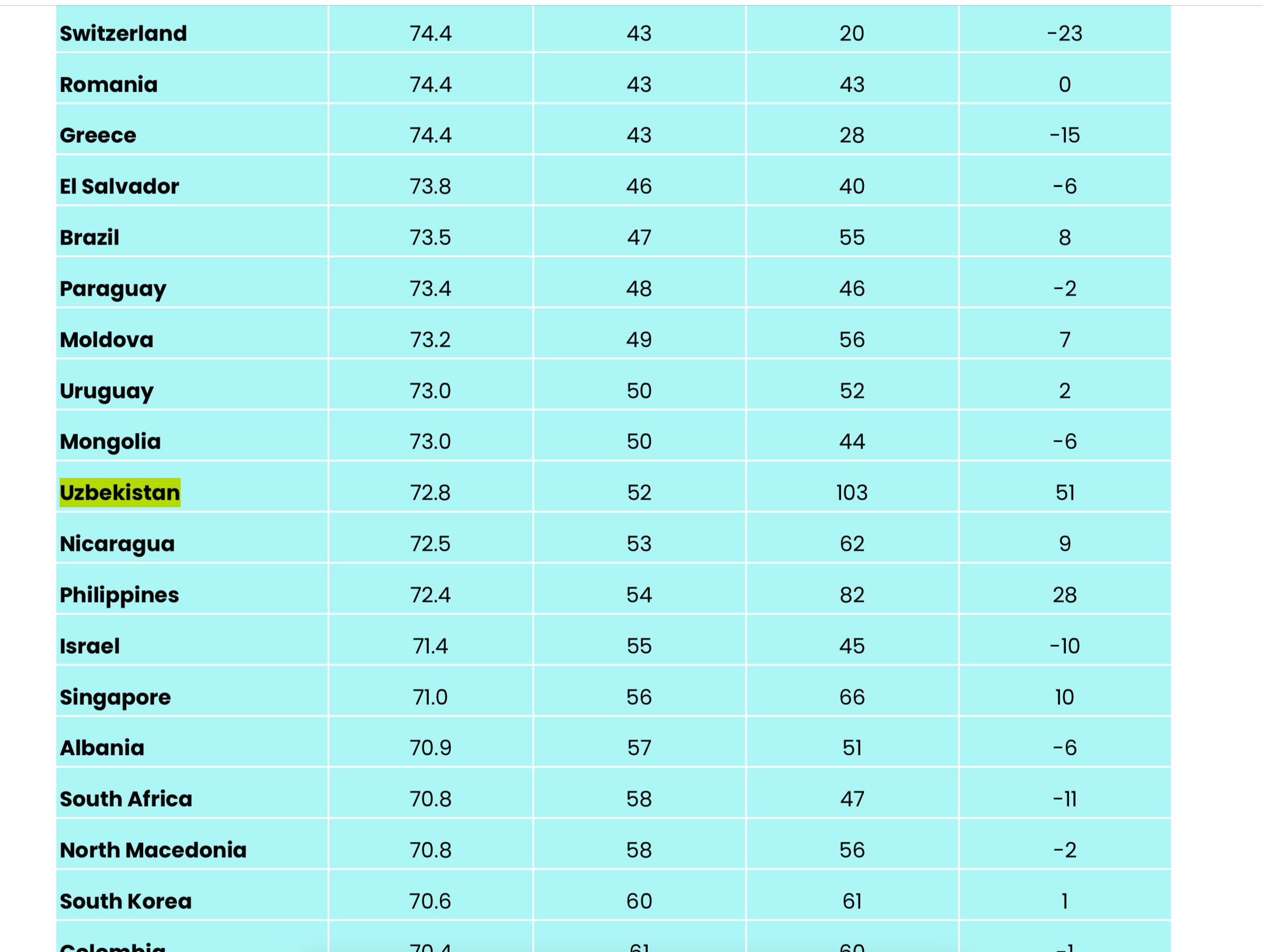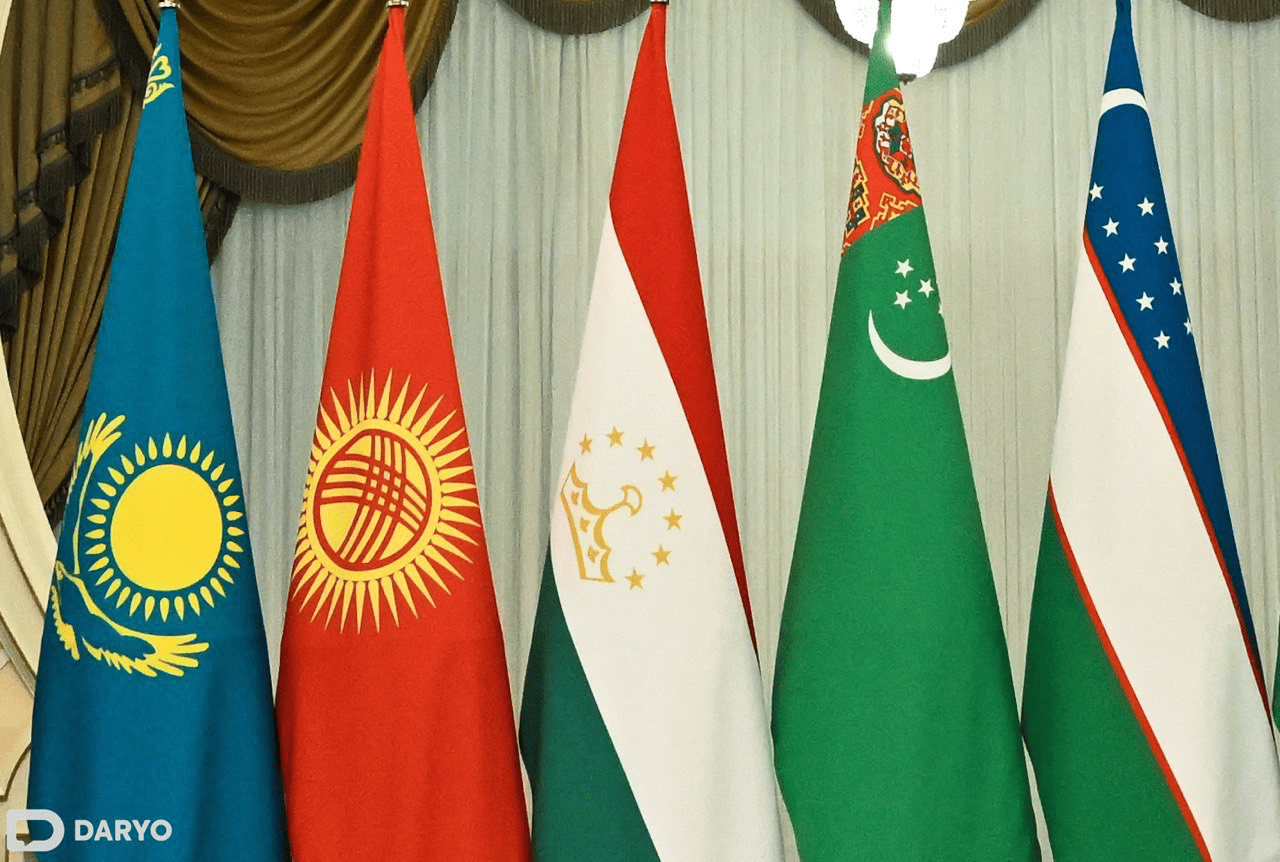Uzbekistan has made progress in gender equality, rising from 103rd in 2022 to 52nd place in the 2024 Gender Equality and Governance Index (GEGI). The index, which evaluates gender equality across 158 countries, provides insights into the successes and challenges women face globally.

The Gender Equality and Governance Index assesses various factors, including women's representation in leadership and legislatures, equal rights to education, property, and credit, pay equity, and the enforcement of domestic violence laws. This year’s report emphasizes the continued struggles women face, especially in conflict zones and countries with authoritarian governance. It also highlights the growing role of women in peace processes and leadership positions globally, recognizing that their involvement is crucial for sustainable peace and development.
Kazakhstan ranks 76th in 2024 with a score of 66.5, showing a steady improvement from 84th place in 2022. Kyrgyzstan has seen a slight decline, falling from 91st to 99th place with a score of 61.6, a drop of 8 positions.
Tajikistan also made strides, rising from 118th to 103rd place with a score of 61.1, improving by 15 positions. Afghanistan continues to face severe challenges, maintaining its position at the bottom of the index in 158th place with a score of 19.2.
Globally, countries like Belgium, Italy, Portugal, and Spain continue to lead the index, reflecting the benefits of democratic governance in advancing gender equality. Meanwhile, regions such as the Middle East, North Africa, and South Asia show slower progress.

The Gender Equality and Governance Index (GEGI) gathers data from global organizations like the World Bank and UN agencies to assess gender discrimination across 158 countries. It focuses on five key areas: governance, education, work, entrepreneurship, and violence. The GEGI is an essential tool for policymakers to monitor progress toward gender equality and pinpoint areas for improvement. By examining these areas, the Index offers a deeper understanding of the complex legal, cultural, social, and economic factors hindering women's equality and their broader impact on societal well-being.
The 2024 GEGI report also highlights the ongoing issue of violence against women. According to the United Nations, nearly one in three women globally experience physical or sexual violence during their lifetime. Although some countries have strengthened laws to protect women, such as Indonesia, the prevalence of violence remains alarmingly high. The report underscores the importance of women’s participation in peace processes and decision-making, particularly as they face unprecedented challenges, including climate change.
Countries like Costa Rica, Mexico, and New Zealand have made progress in gender equality by ensuring near-equal representation of women in national parliaments. In contrast, other nations, like Japan, continue to struggle with gender disparities, especially in leadership positions and sexual harassment laws.
As the world confronts numerous global challenges, from climate change to rising geopolitical tensions, empowering women remains one of the most powerful tools for ensuring sustainable development and peace. The 2024 GEGI stresses the importance of women's involvement in environmental policies, noting that 80% of those displaced by climate change are women. While men still dominate most climate change delegations, women have taken the lead in countries such as Australia, Mexico, and Thailand.
Follow Daryo's official Instagram and Twitter pages to keep current on world news.
Comments (0)